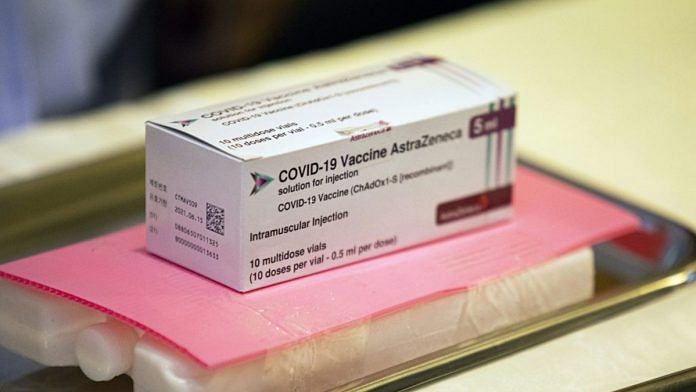Chandigarh: The deputy commissioner of Ludhiana, Punjab, has expanded the definition of “frontline workers” to be vaccinated for Covid-19 to include a whole range of categories, such as teachers, bank employees, judges, advocates, journalists and NGO workers.
In the order issued Monday, Deputy Commissioner Varinder Kumar Sharma said people who remained active during the pandemic, including these categories, should be identified as ‘frontline workers’ and vaccinated forthwith.
The Government of India, while launching the second phase of vaccination for ‘frontline workers’ last month, had included police, civil defence, home guards, paramilitary personnel, municipal workers, disaster management professionals, fire safety personnel and prison staffers.
Sharma’s order added that employees of the various agencies involved in the procurement of grains during the pandemic and the entire staff of the court complexes should also be vaccinated as “frontline workers”. The order is also applicable to employees of cooperative societies.
“‘Frontline workers’ are a broad category of people… all those who worked during the pandemic are still working and are expected to continue with their work actively in the coming days as well. As district authorities, we have the discretion to assess whom to include in the category of ‘frontline workers’,” the Ludhiana DC told ThePrint.
“The idea is to go with the spirit of the definition of ‘frontline workers’, not the letter alone. The categories which I have listed are the ones which I know have been working actively in the field and need to be vaccinated immediately, so that they are able to continue with their activities and also not spread the disease,” he added.
“During the course of the pandemic, we saw so many NGOs sticking their necks out and helping others despite the risks. Then there are teachers who have started going to schools; they need to be vaccinated immediately so that they don’t spread the disease. Banks remained open virtually all through the pandemic; their employees need to be vaccinated. Similarly, all those involved with procuring food grains in Punjab should be vaccinated.”
Also read: From vaccine hesitancy to vaccine eagerness. In phase II, Modi govt has new challenges
Covid resurgence in Punjab
Punjab, like many other states in India, is witnessing a sharp increase in the number of fresh Covid cases. On 11 February, the number of fresh cases reported in Punjab was as low as 300, but by Sunday 14 March, it was registering 1,500 per day. The same day, 20 people died of Covid, taking the total number of deaths in Punjab to 6,072.
The most positive cases have been reported from Ludhiana, Jalandhar, Kapurthala, Mohali, Patiala and Nawanshahr, and to counter this, the state government imposed night curfew in several districts and shut down schools last week.
The case fatality rate in Punjab also continues to remain highest in the country at over 3 per cent. The national average is a little over 1 per cent.
On the vaccination front, Punjab has managed to give the first dose to over 2 lakh healthcare and frontline workers, while over 66,000 have received the second shot too. Almost 94,000 people above the age of 60, and those above 45 with comorbidities, have been vaccinated. Overall, India has vaccinated almost 3 crore people since the drive began in January.
Also read: Punjab reports over 1,000 new Covid cases in a day, pushes India’s daily tally to 16,838
Edited by Shreyas Sharma



